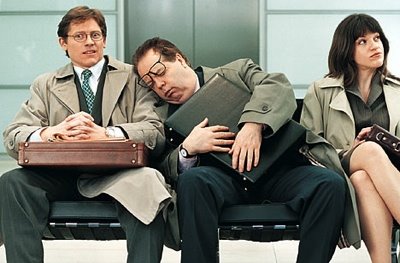Hypersomnia is a term that refers to a collection of sleep disorders that all include having trouble staying awake during the day. 40% of people experience symptoms of hypersomnia during their lives. Common symptoms of hypersomnia include anxiety, tiredness during the day, feeling disoriented, drowsiness, hallucinations, having trouble remembering, and a loss of appetite.
Hypersomnia is very similar to a sleep disorder known as narcolepsy which causes people to fall asleep or become very drowsy during the day due to a problem with the brains ability to manage the REM cycle. The REM cycle is a four phase process that determines how deep of a sleep you are in.
People who feel very tired, and feel like they need to go to sleep for most of the day might have hypersomnia and should get checked out by a sleep specialist or a family doctor. A sleep specialist can run tests including blood tests, polysomnograhy, an EEG, or CT scan to help determine if hypersomnia may be contributing to your daytime sleepiness.
What Causes Hypersomnia
There are a variety of sleep disorders that fall under the category of hypersomnia. Consequently, there are many causes of hypersomnia. Depending on the specific type of hypersomnia sleep disorder that you, have your daytime sleepiness may result from a medical condition, a medication, or from sleep deprivation .
Hypersomnia sleep disorders may be caused by medications, neurological conditions (such as multiple sclerosis,) being overweight, high levels of stress, or by not getting enough sleep (sleep deprivation.) If you have recently suffered a head injury and are experiencing symptoms of hypersomnia you may have a concussion; consult your doctor immediately. You should also discuss your hypersomnia sypmptoms with your doctor, especially if they have begun after starting a new medication.
Having a family history of hypersomnia increases your risk for developing a hypersomnia sleep disorder.
Treating Hypersomnia
To treat hypersomnia your doctor may either prescribe you various medications such as clonidine, levodopa, bromocriptine, antidepressants, monoamine oxidase inhibitor, amphetamine, methylphenidate, and modafinil. Another form of treatment is continuous positive airway pressure, or CPAP. CPAP is when you wear a mask over your nose while sleeping. The mask is connected to a machine that continually flows air into your nose through the mask. CPAP is most commonly associated with the treatment of sleep apnea. Also, if you have been prescribed a new medication that is disrupting your sleep cycle ask your doctor about changing medication to an alternative that will allow you to get the proper amount of sleep.

